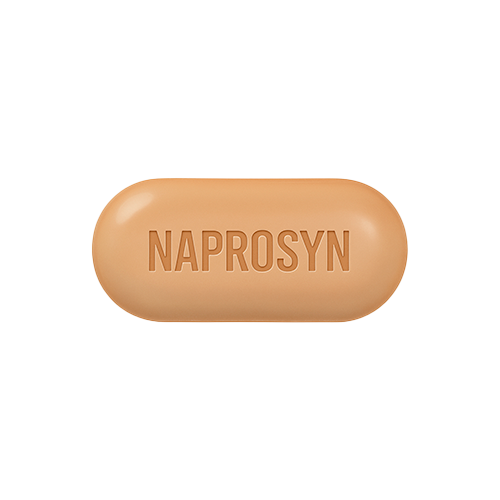Arava (leflunomide) is a prescription medication classified as a disease-modifying antirheumatic drug (DMARD). It helps slow the progression of autoimmune conditions like rheumatoid and psoriatic arthritis by suppressing overactive immune responses.
Unlike fast-acting pain relievers, Arava works gradually over weeks and requires consistent use and regular lab monitoring. Here’s what to know about dosing, side effects, and how it fits into long-term care plans.
Arava Product Description
Arava is a disease-modifying antirheumatic drug (DMARD) that works as a pyrimidine synthesis inhibitor, effectively reducing inflammation and slowing the progression of autoimmune joint diseases. Through its active metabolite leflunomide, Arava provides anti-inflammatory, immunosuppressive, and antiproliferative effects that help manage symptoms of active rheumatoid arthritis and psoriatic arthritis. By targeting the immune response, Arava helps to minimize joint damage, preserve mobility, and protect overall joint function over time. The medication is particularly valuable for long-term management, offering gradual and sustained therapeutic benefits. Clinical studies show that patients may experience symptom relief within 4-5 weeks, with improvements continuing over several months of treatment. Arava is known for its ability to reduce morning stiffness, joint swelling, and discomfort while helping to prevent disease flare-ups. This medication is an essential option for those who have not responded adequately to first-line treatments. Regular monitoring is required to assess liver function and blood counts to ensure safe, ongoing use. Arava has become an important part of modern rheumatology care, improving patients’ quality of life by controlling disease activity and limiting joint destruction.
Drug Uses
Arava is prescribed for adults and adolescents over 18 years old to manage active psoriatic arthritis and active rheumatoid arthritis. Its immunosuppressive action helps control overactive immune responses that lead to chronic joint inflammation and pain. By interfering with the growth of specific immune cells, Arava slows down the structural damage that occurs in these autoimmune diseases. The standard treatment typically starts with a loading dose of 100 mg daily for the first three days, followed by a maintenance dose of 20 mg daily. If the drug is poorly tolerated, the dose may be reduced to 10 mg per day. For elderly patients over 65 years, no special dosage adjustments are required unless there are complicating health conditions. Treatment with Arava should always be guided by a healthcare provider who monitors patient progress and potential side effects. The benefits of Arava therapy accumulate over time, making long-term use critical to achieving lasting relief from symptoms. Patients should not discontinue the medication without consulting their doctor, as this could lead to a return of disease activity.
Missed Dose
If a patient forgets to take an Arava dose, it should be taken as soon as remembered unless the next scheduled dose is near. In such cases, the missed dose should be skipped, and the regular schedule continued. Doubling the next dose is strongly discouraged, as this can increase the risk of side effects such as liver complications or gastrointestinal discomfort. Patients are advised to maintain a consistent daily routine to avoid missing doses, which is essential for stable disease control. If missed doses occur frequently, consulting a healthcare provider for guidance on how to manage the treatment schedule is recommended.
More Information
Arava tablets should be swallowed whole with a sufficient amount of water, and the medication can be taken with or without food at the same time each day. Patients undergoing treatment are strongly advised to avoid alcohol consumption due to the increased risk of liver damage. Routine blood tests are required during treatment to monitor liver function and blood cell levels. It is important for patients to follow all medical recommendations carefully and report any unusual symptoms immediately. Long-term treatment with Arava can be highly effective when managed under the supervision of a rheumatologist.
Medically reviewed | Based on guidelines for leflunomide use in immune-mediated inflammatory disorders.
Arava is commonly prescribed in 10mg or 20mg daily doses after a 100mg loading dose, depending on the condition and patient tolerance. Liver function and blood cell counts should be monitored regularly during use.
Storage
Arava should be stored at room temperature, below 25°C, in its original packaging to protect the tablets from moisture and light exposure. The medication must be kept out of reach of children and should not be stored in areas with high humidity, such as bathrooms or kitchens. Proper storage ensures the medication maintains its full therapeutic effect until its expiration date. Patients should check packaging regularly for any signs of damage or contamination and dispose of expired tablets safely.
Arava Safety Information
Arava is contraindicated in pregnant women, breastfeeding mothers, and patients with severe immunodeficiency, liver dysfunction, or significant bone marrow suppression. The medication may increase blood pressure in some individuals, requiring regular monitoring. Patients with hypoproteinemia, such as those with nephrotic syndrome, should use Arava only under strict medical supervision. Live vaccines should not be administered during treatment due to the risk of weakened immune response. Co-administration with activated charcoal can reduce Arava’s effectiveness by accelerating its elimination from the body. Several medications, including theophylline, tizanidine, oral contraceptives, and certain anti-inflammatory and cancer treatments, may interact with Arava, so a full medication review is necessary before starting therapy.
Disclaimer
This information about Arava is intended for educational purposes only and does not replace professional medical advice from a qualified immunologist or rheumatologist. Patients should always consult a healthcare provider before starting or modifying any treatment. The online pharmacy is not responsible for any outcomes resulting from the misuse of this informational review.
Arava Side Effects
Common side effects of Arava may include nausea, leucopenia, weight loss, and musculoskeletal pain. Some patients report gastrointestinal disturbances, such as diarrhea and dyspepsia, as well as neurological symptoms like dizziness, headache, and fatigue. Skin reactions, including mild rashes or allergic responses, can also occur. Occasionally, patients experience paraesthesia or respiratory infections during treatment. Less frequent but notable side effects include hypertension and hair loss. Regular follow-ups with a healthcare provider help detect these side effects early and allow for appropriate management. In some cases, dosage adjustments or discontinuation of the medication may be necessary to reduce adverse reactions. Patients should promptly report any severe or persistent symptoms to their doctor.
For other autoimmune therapies, see Methotrexate or Prednisone, often used in combination with or as alternatives to Arava.







Reviews
There are no reviews yet.